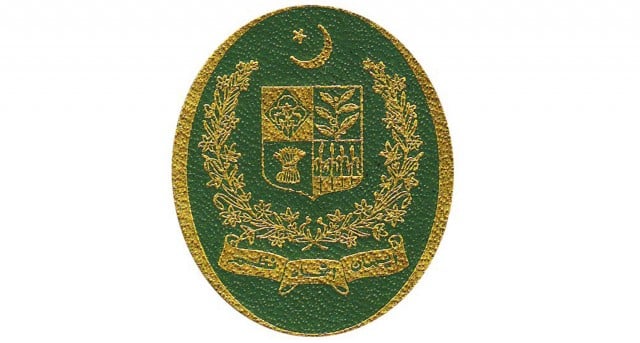
Unfortunately Pakistani student Zuhair’s experience with the consulate in Houston was slightly different from what the message above promised.
Zuhair is a university student living in Houston. He has been studying in the US for the past three years. Recently, he realised his passport was going to expire in a month and decided to call a Pakistani consulate in his area to get advice on how to renew his passport.
What followed was a three-week wild goose chase which had Zuhair calling consulate after consulate in a vain effort to get his hands on a new machine-readable passport.
Zuhair started out by calling the Pakistani consulate in Houston. After dialling the consulate persistently for five hours, he spoke to an official who told him he could be issued a manual passport from the Houston consulate, but not a machine-readable passport. The official told Zuhair that the only Pakistani consulates in the US with facilities to issue machine-readable passports were located in New York and Los Angeles.
Zuhair currently holds a machine-readable passport. He did not want a manual passport, especially in light of the Directorate General of Immigration & Passport’s policy which states “machine-readable passport system is replacing the existing manual system. Every citizen of Pakistan will have the relevant passport for travelling abroad.”
Zuhair enquired whether he could mail his documents to the consulate in New York and collect his new passport from the Houston consulate. He was told this was not possible.
Zuhair calculated that he would have to spend over $400 to get his passport renewed, considering that the fee for passport renewal is $46 and the airline ticket to New York would cost him $380.
Trying desperately to avoid dishing out $400, Zuhair contacted the Pakistani consulate in LA directly. Unable to reach a consular official by telephone, he visited their website. It stated: “Due to technical reasons operation of machine readable passport system is suspended. New dates for machine readable passports will be announced in due course.” This notice is still on the website.
Zuhair then called Pakistani consulates in New York, Chicago and Washington DC, but could not manage to get hold of a consular official on the phone, although he left several messages.
Zuhair’s story is just one of the many tales of Pakistanis abroad frustrated by government inefficiency.
“It’s so frustrating,” Zuhair said. “Living in the US, one gets so used to the convenience of doing things online. Why can’t Pakistani authorities do this too?” he wondered.
Zuhair could not get a machine readable passport made in Houston because the Pakistani consulate in Houston does not possess facilities for biometric scanning (finger printing, digital photos).
According to the foreign office, only select Pakistani missions are equipped with this facility due to financial constraints.
“We can’t really help this,” said FO spokesperson Abdul Basit. “This is an administrative issue. We are working to make this facility available but it will take some time. Currently we are focusing on countries where we have a large percentage of Pakistani nationals.”
Commenting on Zuhair’s case, the spokesperson was apologetic but could offer no solutions. ”He’ll have to go to either New York or Los Angeles,” he said. “We can’t really help this.”
Pakistanis in Europe aren’t much better off than their fellow citizens in the US. Pakistani citizen Adnan has been studying in France, for the past two years, and can identify with Zuhair’s story.
Adnan has to get his passport renewed soon, and will have to travel to London, Frankfurt or Rome to undergo biometric scanning.
“I will have to travel to London to apply for a new passport,” says Adnan. “And worse, I will have to go there again after a few weeks to collect my passport as it can’t be mailed to me.”
Adnan also faced considerable difficulties getting an identification card for overseas Pakistanis (NICOP) as he had to travel to London to get scanned, and had to wait until NADRA made his card and sent it back to the London embassy.
“In Pakistan, an urgent national identification card takes 15 days to get made, but sitting here the best time is 6 weeks and can easily take 12 weeks or more,” he complained.
A former ambassador tried to shed light on the problems plaguing Pakistani missions abroad, saying that most issues were caused by a lack of funds.
“Pakistani embassies abroad do not have the funds to offer these services at all their consulates,” he said. “Besides, the Interior Ministry decides where to place the facilities for biometric scanning. They aim to place these facilities in central locations.”
The former diplomat also highlighted additional chinks in the system, saying that Pakistani missions are perpetually understaffed.
“The number of queries embassies receive has increased at least tenfold whereas embassy staff has increased by only 10 per cent,” he claimed.
The issue of financing aside, officials had different ways of responding to complaints that embassy staff in Pakistani missions abroad was inaccessible or unhelpful.
“I would not say that all our missions are inaccessible,” said Basit. “That would be a generalisation.”
However, a retired diplomat conceded that embassy officials were not quick to respond to emails.
“Consular staff is not very accessible through email as the Pakistani government does not have an email culture,” he said. “But if you call an embassy, someone will respond to your query.”
According to the Ministry of Overseas Pakistanis, there are over 5 million Pakistanis spread out across the globe, studying, working and raising families outside their home country.
But the facilities to register and document these nationals are not always available in their city, or even country.
The question, then, is why Pakistan is switching to a more advanced system of documenting its citizens (via biometric scanning) when the finances to provide these services to all are not available.
The answer provided by a former official was not exactly satisfying.
“We have to keep up with the times,” he sighed. “We face pressure from other states to adopt the biometric system of scanning our citizens.”
Published in The Express Tribune, July 5th, 2010.


1732519298-0/BeFunky-collage-(85)1732519298-0-165x106.webp)
1732611352-0/lamar-(5)1732611352-0-165x106.webp)
1732610018-0/BeFunky-collage-(91)1732610018-0-165x106.webp)

1732603037-0/BeFunk_§_]__-(51)1732603037-0.jpg)
1732610150-0/Untitled-design-(3)1732610150-0-270x192.webp)

1732610854-0/Untitled-design-(68)1732610854-0-270x192.webp)
1732608486-0/BeFunk_§_]__-(54)1732608486-0.jpg)






COMMENTS (15)
Comments are moderated and generally will be posted if they are on-topic and not abusive.
For more information, please see our Comments FAQ